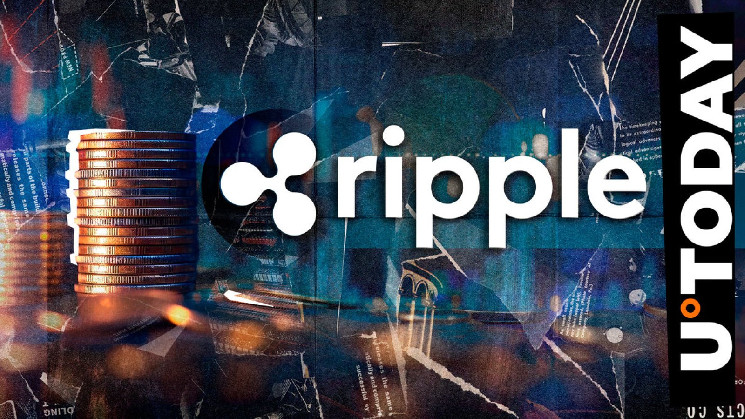Ripple Unveils Key Stablecoin Trends Ahead of RLUSD Launch

Ahead of the issuance of Ripple’s U.S.-dollar pegged stablecoin, the company has revealed some notable trends in the industry. The stablecoin’s design combines blockchain technology’s benefits with trust in traditional currencies.
Given their fast adoption globally, Ripple appears ready to leverage the growing trends in stablecoin usage. The company believes stablecoins have the potential to reshape the world’s finances and has highlighted some crucial trends.
Is stablecoin gaining acceptance?
For context, stablecoins are digital currencies pegged to a fiat currency like the U.S. dollar (USD). This aims to eliminate some people’s fears about price volatility. Stablecoins have gained traction as businesses favor blockchain technology for its speed, security and transparency.
Data shows that in 2022, $6.87 trillion of fiat-backed stablecoins were transacted in digital payments. This surpasses familiar traditional payment networks like PayPal and MasterCard and highlights the growing potential of stablecoins in payment ecosystems.
Meanwhile, since 2018, the number of Americans who did not use cash for purchases has risen to 41% from 29%. This has prompted business owners to switch to stablecoin payments, as customers prefer its faster checkouts and better security. Additionally, the lack of middlemen means decreased costs for business owners.
Regulatory momentum for stablecoins
According to Ripple, the upcoming RLUSD stablecoin will maintain a constant value of one U.S. dollar and be redeemable 1:1 for USD. The RLUSD will be issued on both the XRP Ledger and Ethereum blockchain. It will enable instant payments, and users can easily convert between fiat and stablecoins.
Ripple says it will deploy smart contracts to enhance programmable finance and open new revenue streams for payment providers.
The company assures us that RLUSD was designed with regulatory compliance in mind. This is critical given that regulatory issues could raise concerns about users’ willingness to adopt the payment method. In the U.S., the Clarity of Payments Stablecoin Act could unlock even more stablecoin innovation.





 Bitcoin
Bitcoin  Ethereum
Ethereum  Tether
Tether  Dogecoin
Dogecoin  USDC
USDC  Cardano
Cardano  TRON
TRON  Chainlink
Chainlink  Bitcoin Cash
Bitcoin Cash  LEO Token
LEO Token  Litecoin
Litecoin  Cronos
Cronos  Stellar
Stellar  Dai
Dai  Ethereum Classic
Ethereum Classic  Stacks
Stacks  Monero
Monero  OKB
OKB  Hedera
Hedera  Cosmos Hub
Cosmos Hub  Theta Network
Theta Network  KuCoin
KuCoin  Maker
Maker  Gate
Gate  Algorand
Algorand  Polygon
Polygon  EOS
EOS  NEO
NEO  Tezos
Tezos  Tether Gold
Tether Gold  Zcash
Zcash  TrueUSD
TrueUSD  Synthetix Network
Synthetix Network  IOTA
IOTA  Bitcoin Gold
Bitcoin Gold  Holo
Holo  Zilliqa
Zilliqa  Dash
Dash  0x Protocol
0x Protocol  Siacoin
Siacoin  Basic Attention
Basic Attention  Ravencoin
Ravencoin  Enjin Coin
Enjin Coin  Qtum
Qtum  Decred
Decred  Ontology
Ontology  NEM
NEM  Lisk
Lisk  Waves
Waves  Hive
Hive  Status
Status  DigiByte
DigiByte  Nano
Nano  Pax Dollar
Pax Dollar  Numeraire
Numeraire  Steem
Steem  Huobi
Huobi  BUSD
BUSD  OMG Network
OMG Network  Ren
Ren  Bitcoin Diamond
Bitcoin Diamond  Bytom
Bytom  Augur
Augur  Kyber Network Crystal Legacy
Kyber Network Crystal Legacy